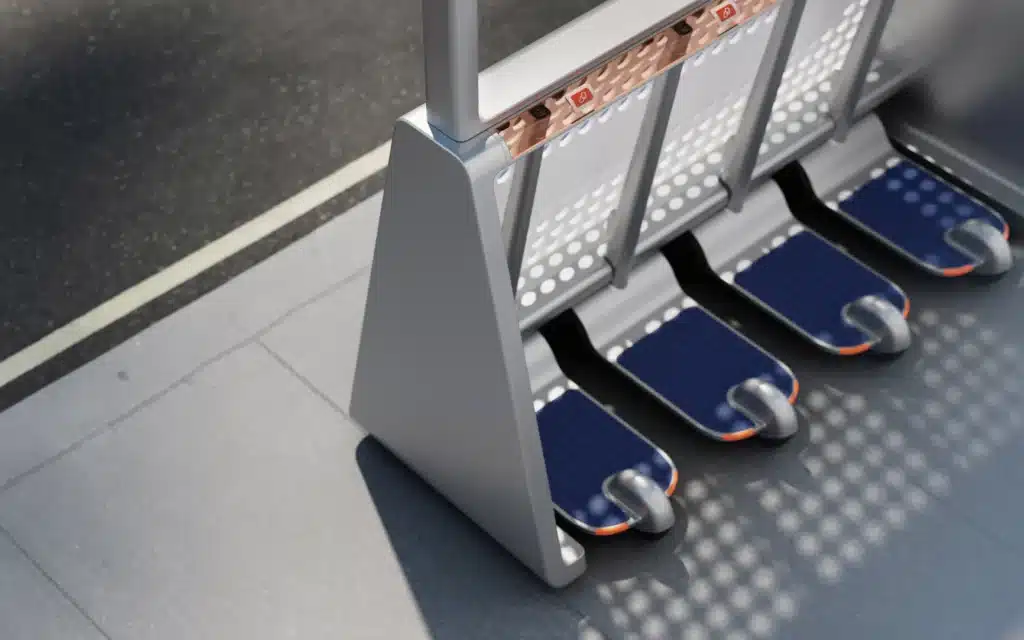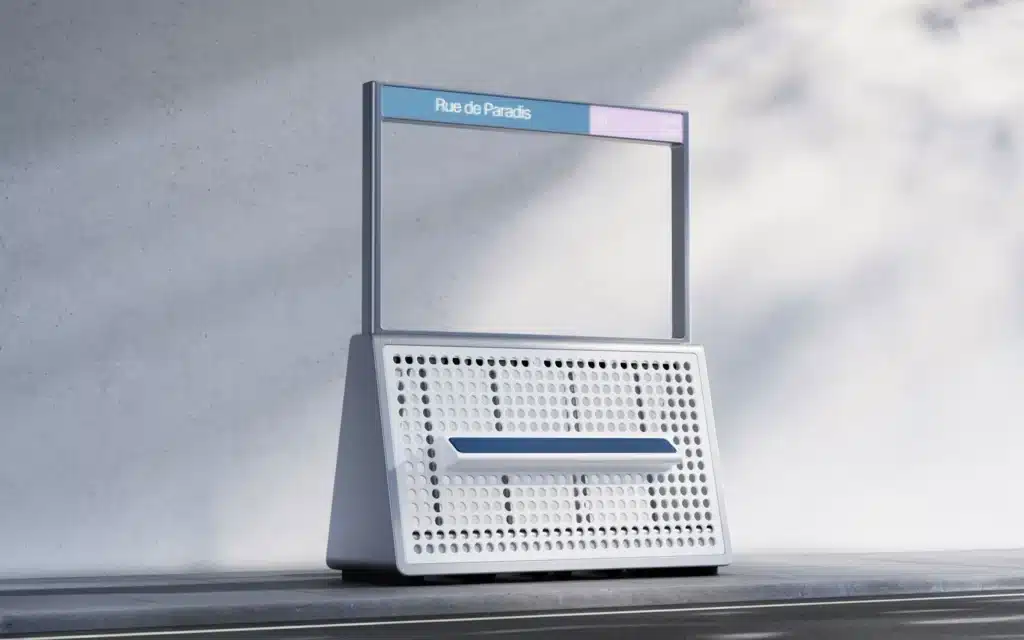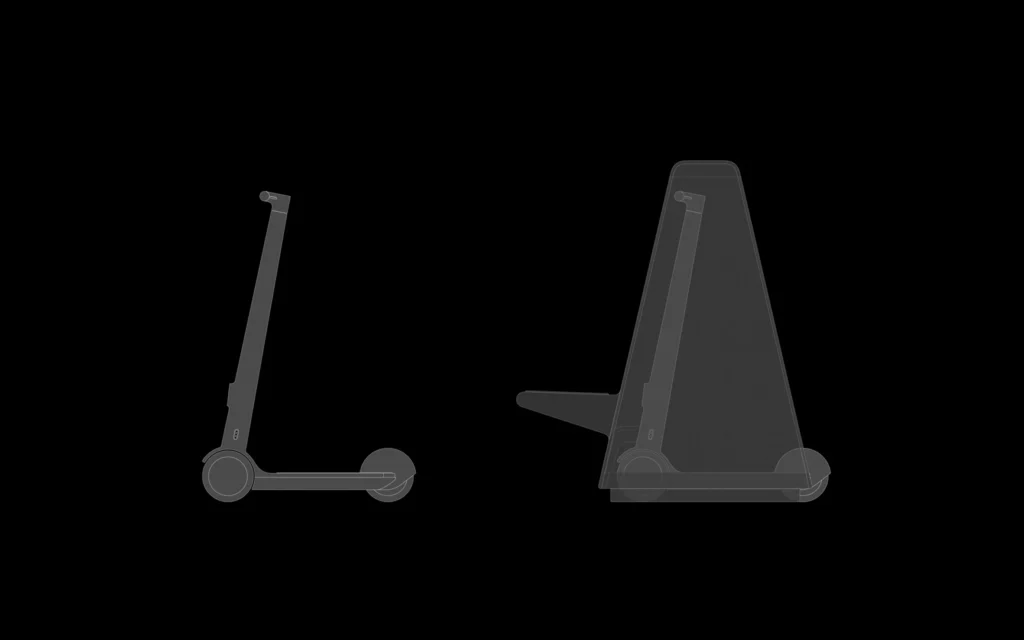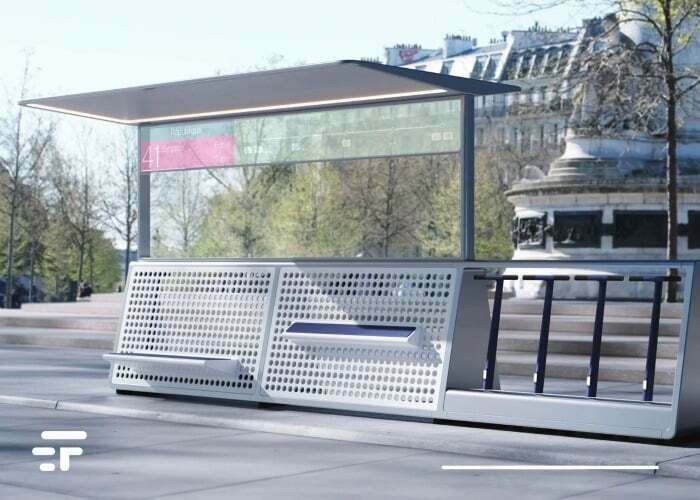Last week I introduced you to the Futur Mobility Competition, a very interesting prize for the best concepts linked to future transport. I did it with Abacus, a futuristic “tram” intended to connect cities and rural areas of Germany. Fantastic solutions abound, and today we take a leap to France, with an even more intriguing concept developed by the design studio Unknown Untitled (yes, that's exactly what it's called).
It's called Micro Mobility Shelter, and it's a scooter sharing service designed for Paris. What is its peculiarity? It is designed to use each bus stop as storage points for electric scooters. What is the goal? “Combine public transportation and micromobility solutions into a coherent project to clean sidewalks and improve how micromobility vehicles are picked up and returned,” the proposal reads.

The super bus stop
The idea is that of a network of new bus shelters, developed to "hide" the escooters in an orderly and discreet way when they are parked. And the convenience is being able to stop and deliver the vehicle at any stop in the city: a solution that increases flexibility and reduces costs.
It goes without saying that everything passes through the next-generation bus stop: a hub equipped with electric charging stations, and with a shape cut out around that of the e-scooters.
The triangular profile of the stop exactly follows the angle of the handlebar attachment of electric vehicles, to optimize space. The same structure, of course, also provides a comfortable seat for all those waiting to board the bus.

A synergy of design and function
The escooters of this ride sharing concept are also designed to integrate perfectly with the project (otherwise what would it be "System")? The scooters are equipped with three wheels, two at the front and one at the rear, to guarantee stability and safety, and have a reduced length to have a better footprint.
In the last five years, bike / scooter sharing services have invaded the streets and cluttered the sidewalks, sometimes also creating inconvenience for pedestrians (and certainly not improving the urban decor).
The boom of companies that have entered the business quickly led to speculation that invaded historic centers: a situation that, already in its embryonic stage, requires regulation.


Paris, an open laboratory
The French capital is at the forefront when it comes to micromobility: the Veil plan it will give it a two-wheeled road system envied throughout Europe, and even the regulations on e-scooters have been implemented in an impeccable way.
This does not mean that the drawbacks remain. There are parking spaces assigned to escooters, battery swap programs and new charging stations, but they are not enough. Growth is dizzying: in 2030 private cars will be drastically reduced by cycle paths and traffic bans, and will be able to travel at 30km per hour. We must prepare to change our skin by embracing new means of transport and partially modifying the aesthetics and organization of spaces.
Thinking of the bus stop as a hub is an idea already used for other purposes (for example for purify the air or favor the restocking of bees), but this seems to me the best interpretation in terms of synergy between public and private transport.

Transforming a stop, transforming the network, transforming the future
This charging hub is the basic unit of a gentle revolution. A redesign that will not change the appearance of our places. Paris (like other European cities) would not see its large avenues transformed, nor its narrow medieval streets.
Simply, with a concept of this type it would reuse an existing meeting point to enrich it with a modular microarchitecture system.
It's my favorite face of the future: green, versatile, human.


